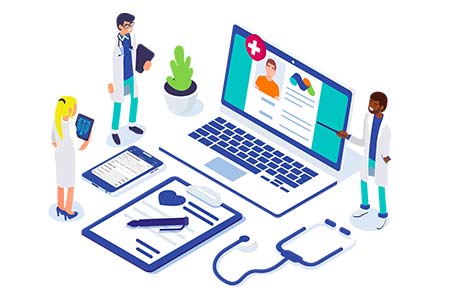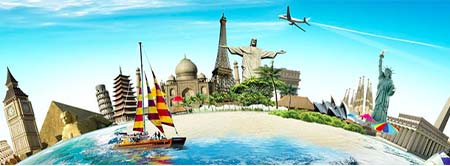Please wait...
UPCOMING EXAMS & EVENTS
CAT 2021 Exam On November 2021
MAT 2022 Exam (IBT) On 06 Feb 2022
MAT 2022 Exam (PBT) On 06 March 2022
Please wait...
UPCOMING EXAMS & EVENTS
CAT 2021 Exam On November 2021
MAT 2022 Exam (IBT) On 06 Feb 2022
MAT 2022 Exam (PBT) On 06 March 2022

A Post Graduate Diploma in Management (PGDM) course is a two-year degree offered by autonomous B-Schools in India that is essential to develop skills in business administration and management that are applicable both in India and abroad. PGDM course is recognized by All India Council for Technical Education (AICTE) and Association of Indian Universities (AIU, equivalent to MBA degree).
It is a global gateway to careers in business and also in accounts, finance, human resources, marketing, and operations. A PGDM degree is essential to obtain business-related practice, skills, and training to start a person’s own company. It is important in the successful planning, analysis, execution, and monitoring of a business idea or venture and helps to boost a student’s experience and awareness.
Candidates from ANY academic background can pursue PGDM – Science, Commerce, or Humanities. Basic eligibility criteria are a Bachelor’s degree from a recognised university with scores of qualifying examinations which may be national (CAT/MAT/CMAT/GMAT/ATMA/XAT), state (KCET/KMAT), B-School (IIFT/NMAT/SNAP/IBSAT), or University-level (KIITEE/DU MAT/HU MAT). This may be followed by a written ability test, group discussion, and personal interview. Prior work experience is an added advantage.
There are two main modes to obtain a PGDM degree:
PGDM course is practical-based and focuses more on management skills and training. Personal skills like communication, attention to detail, time management, leadership, and teamwork are enhanced; and professional skills like business management, problem-solving, numerical ability, analytical reasoning, critical-thinking, presentation, and research are enhanced. The PGDM course curriculum is industry-oriented and flexible. It is divided over a period of four semesters and includes important business theories with more focus on experience, skill, and training programs like practical assessments, workshops, elective courses, skill- enhancing programs, student exchange programs, guest lectures from international faculty, and internships and projects.
Qualified PGDM graduates are in very high demand in almost every industrial sector. All organisations, both private or government, require PGDM graduates for various roles and functions. The average salary of a PGDM graduate is between 2.5 LPA to 15 LPA.

Healthcare Analytics is an upcoming specialization of management. It involves comprehensive analytic strategies and management techniques to solve complex challenges of the healthcare sector. Candidates are trained to develop and research solutions and provide inputs related to hospital management, patient records, services, hospital procedures, surgical costs, budget, costs, and diagnosis. The curriculum includes important theories and experience-based methodology like project coursework, dissertations, capstone, projects, summer internships, guest lectures, industrial visits, and a final internship after the course. Personal skills like leadership, communication, presentation, and leadership; and Professional skills like analytical reasoning, decision- making, planning and execution, problem-solving, and research are developed and enhanced through this course.
With the emergence of the global pandemic COVID-19, there has been an increased demand for Healthcare Analysts to handle, manage, and maintain patient outcomes, constant testing and diagnosis, medication, testing and retesting, symptom control, and health documentation. Graduates are largely hired in hospitals, clinics, nursing homes, pharmaceutical companies, and diagnostic centres. Graduates are given an average salary between 2.5 LPA to 8 LPA which increases with experience.
The course curriculum includes Topics such as:

Logistics and Supply Chain Management involves the plans and strategies necessary for the organization, management, maintenance, and transport of goods from one region to another to maintain continuous supply with the increased demand and maintain consistency and smooth flow in an interconnected business. Any delays in the supply of important services leads to company losses which affects profit and revenue so it is important to monitor and regulate consistent supply and demand. The course deals with the management, regulation, and policies of trade to ensure smooth and uninterrupted business. The curriculum includes important concepts and management strategies with more focus on experience-based methodology like project coursework, dissertations, summer internships, seminars, guest lectures, and field visits. Personal skills like verbal communication, organisation, and leadership; and Professional skills like analytical reasoning, decision- making, accounting, planning and execution, entrepreneurship, and problem-solving are developed and enhanced through this course. Logistics and Supply Chain Management is a fast-growing career specialization because it focuses on global plans and strategies, tools, transport processes and procedures, management plans, and maintenance.
With the emergence of the global pandemic COVID-19, there has been an exponential demand for Logistics and Supply Chain Managers to handle, manage, and maintain constant supply and demand of important essential resources across many geographical areas and locations. Graduates are hired in manufacturing companies, oil and gas production units, distribution companies, academic institutions, freight and transportation companies, and processing units. Graduates get an attractive salary between 2.5 LPA to 7.5 LPA which gradually increases with professional experience.
The course curriculum includes Topics such as:

Retail Management emphasizes on the steps involved from acquiring resources through a retail manufacturer to advertisement, distribution, and sales among potential clients. The course deals with the strategies and plans involved in the acquisition or extraction of raw materials followed by the manufacture, sale of consumer goods or services, transport, advertisement, marketing, and sale of finished products. The regular exchange centres are shops, supermarkets, and malls. Through this course, candidates can easily understand client requirements and initiate activities to meet these requirements through careful planning and strategy which can ultimately result in profit and economic gain. The main mission of the course is to ensure that the client or customer is always satisfied. This course encourages holistic and sustainable management of resource production and sale of products The curriculum includes important concepts and theories, subject-related electives, and experience-based methodology like project coursework, dissertations, projects, summer internships, guest lectures, and industrial factory visits. Personal skills like communication, presentation, and leadership; and Professional skills like analytical reasoning, entrepreneurship, spreadsheet designing, decision-making, planning and execution, and problem-solving are developed and enhanced through this course.
Retail Management combines the knowledge of resource utilization with concepts of manufacture, production, and distribution. Graduates are largely hired in corporate offices and MNCs, manufacturing companies, textile factories, apparel production centres, and supermarkets. Graduates get a salary between 3 LPA to 8 LPA which gradually increases with professional experience.
The course curriculum includes Topics such as:

Sports Management focuses on the theoretical and practical management strategies involved in organizing, managing, and monitoring sports resources to organize and simplify sports- related events, campaigns, and problems. The course involves digital media, contract management and documentation, staff management and recruitment, event organization, and budget finalization. It is the perfect blend of academics and leisure – especially for sports enthusiasts. The curriculum includes important theories with focus on experience-based methodology like project coursework, projects, summer internships, guest lectures, and stadium visits. Personal skills like leadership, innovation, communication, and creativity; and Professional skills like analytical reasoning, entrepreneurship, technical knowledge, decision-making, planning, and execution are developed and enhanced through this course.
The course involves effective and strategic management of sports resources, activity training, match hosting and organisation, merchandising, events and media, leagues and tournaments, advertising, and marketing to help increase revenue and company profits. Graduates are hired in academic institutions, consultancies, and MNCs. Graduates get a salary between 2.5 LPA to 7 LPA which gradually increases with professional experience.
The course curriculum includes Topics such as:

Travel and Tourism Management involves the concepts and planning of strategies to provide comfort and security to clients and ensure a peaceful stress-free environment during leisure trips, holidays, and vacations. Indian tourism is world famous because of its rich culture, unique resources, captivating architecture, vibrant sceneries, mythological history, ancient practices, and one-of-a-kind ethnicity. The course deals with how to satisfy guests and ensure comfort through an individual’s managerial, marketing, leadership, and hospitality skills. Strategies to solve travel-related queries and problems are also addressed to ensure uninterrupted and smooth business and profit. Candidates are also guided on how to attract, persuade, accommodate, take care of, and entertain guests. The curriculum includes important concepts and experience-based methodology like project coursework, projects, summer internships, dissertation reports, student exchange programs, hotel internships, guest lectures, and hotel visits. Personal skills like communication, presentation, innovation, teamwork, and leadership; and Professional skills like analytical reasoning, entrepreneurship, decision-making, planning, and problem-solving are developed and enhanced through this course. Travel and Tourism Management is a very crucial career specialization because it is necessary in the development and global recognition of a country.
With the emergence of the global pandemic COVID-19, there has been a setback for the industry BUT an increased demand for Travel, Airlines, and Tourist Consultants and Counsellors to handle and manage the wellbeing of tourists and travellers to overcome the problems, complications, and health hazards caused by the outbreak. Graduates are largely hired in hotels, restaurants, corporate companies, cruises, airlines, MNCs, and hospitals. Graduates get an attractive salary between 2.5 LPA to 12 LPA which gradually increases with professional experience.
The course curriculum includes Topics such as:
A PGDM is a postgraduate degree that is essential to develop practical skills and training in business management. The Top 5 PGDM Specializations – Healthcare Analytics, Logistics and Supply Chain Management, Retail Management, Sports Management, and Travel and Tourism Management are fresh specializations that help students to become more efficient and competent in a business or organization. They are useful because of constantly changing global trends and dynamic business progress and provide an opportunity to explore different career choices.
What is the average salary package for PGDM graduates in Bangalore?
Previous PostWhy to study PGDM and how to choose its specializations ?
Next Post
Comments